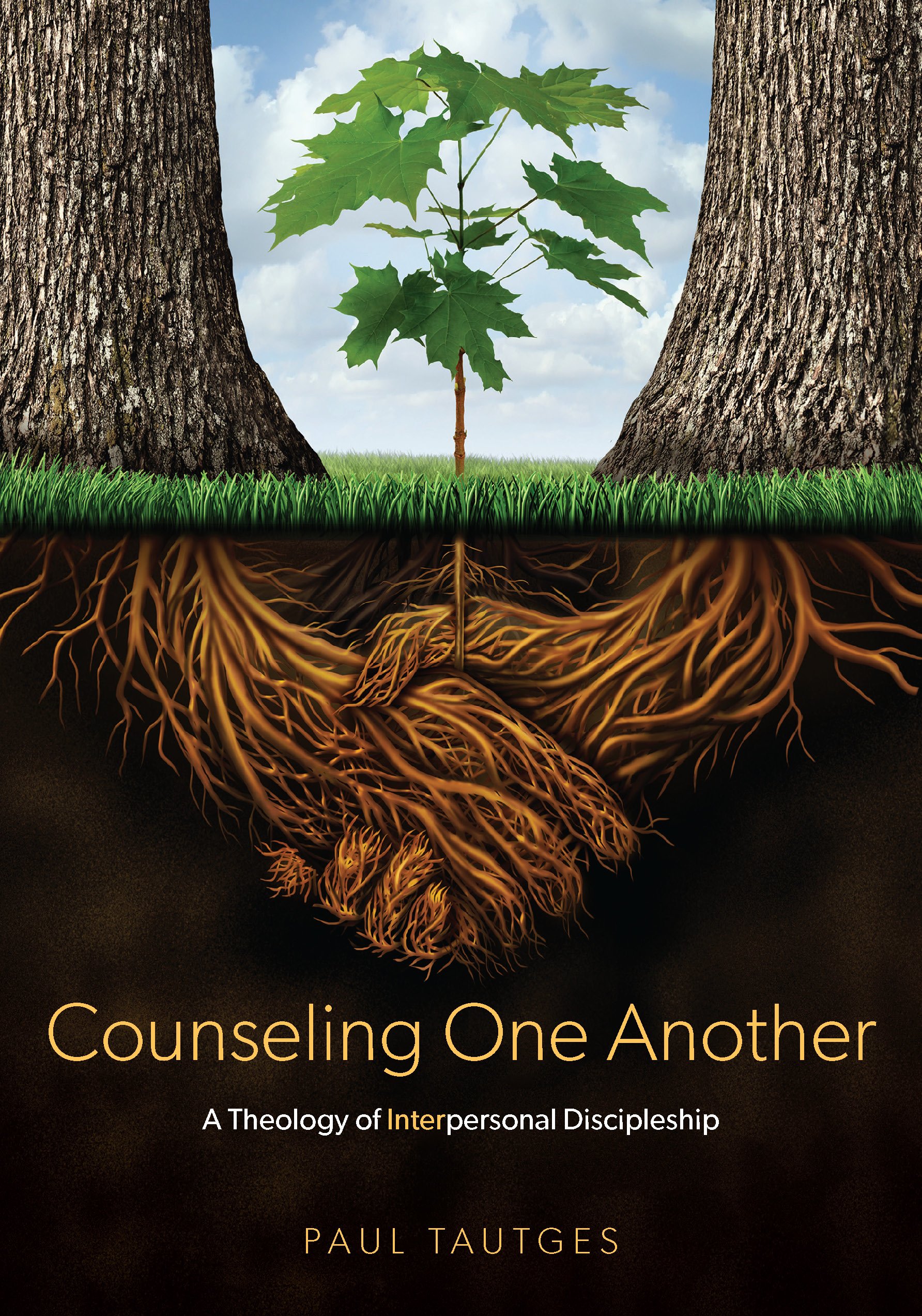Books At a Glance (Fred Zaspel):
The first thing that struck me when I opened the book is that in your title – Counseling One Another – you intend something more than we may catch at first glance. Explain your title for us. What is your book all about?
Tautges:
This book is about biblical discipleship. It’s that simple. The ministry of counseling has too often been relegated to the professional outside the church because we don’t understand what discipleship entails. This is not to say there is no need or place for the professional counselor; however, the lion’s share of this personal ministry can and should be done as part of the natural function of a body of believers growing in grace and truth, together. I prefer to call counseling “intensive discipleship.” It is an expression of biblical love to come alongside one another when we are struggling with our faith, are suffering, or are losing the battle against the power of indwelling sin. Hence, the subtitle: A theology of inter-personal discipleship.
Zaspel:
Okay, unpack that for us just a bit. You don’t mean that every Christian should set up a counseling office and hang out a shingle. What does “counseling one another” look like?
Tautges:
Counseling one another looks like every one of us always being in the process of moving toward maturity in Christ, ourselves, which includes learning to speak the truth in love to one another. As we minister the truth of the Word of God to one another in an atmosphere of genuine concern, as an extension of grace, we make progress in our sanctification. Yes, we each have responsibility for our own spiritual growth; however, we also have responsibility for one another. Sanctification truly is a community effort that is lived out in relationship with others.
Zaspel:
Let’s take it a bit further. First, what is a disciple?
Tautges:
A disciple is one who follows another’s teaching. Therefore, a disciple of Jesus Christ is not merely one who confesses Christ, though that certainly is true (Rom. 10:9), but one who intentionally attaches him- or herself to Him and adheres, or submits, to His commands as the new standard for living, and consequently becomes like Him. A disciple of Jesus Christ is one who is committed to a lifelong process of growing in obedience to his Master’s commands and, by doing so, becomes like Him.
Zaspel:
And what is discipleship?
Tautges:
Jesus’ command to His followers was nothing short of a mission of spiritual reproduction. The verb form of mathetes means “to instruct with the purpose of making a disciple. Matheteuo must be distinguished from the verb matheo (which is not found in the NT), which simply means to learn without any attachment to the teacher who teaches. Matheteuo means not only to learn but to become attached to one’s teacher and to become his follower in doctrine and conduct.” In other words, the task of the church is to lead others not merely to acknowledge the Son of God as having come in the flesh in the person of Jesus Christ (though that is an essential point in a doctrinal system that is truly biblical; see 1 John 4:2–3), but to lead them to become submissive Christ-followers. Therefore, the church must take the initiative to pursue a biblical approach to ministry that involves training believers to reproduce themselves spiritually in the lives of others.
Zaspel:
How might churches foster this kind of “counseling one another” atmosphere?
Tautges:
Pastors need to teach their people that making disciples of Jesus is the primary task of the church, and is a work that necessitates the involvement of every believer. Disciple-making is not only for church leaders; it is for every Christian to one extent or another. Congregations need to understand what it means to live as a community of the faith, which involves the exercise of biblical love in “one-anothering” relationships. Believers also need to understand what biblical sanctification looks like, that is, that none of us has arrived and will not until Jesus returns. That means we are all fellow strugglers in need of counseling, that is, we need to receive counsel and we need to learn how to speak the truth in love to one another in a helpful manner.
Zaspel:
Let’s take just one sample scenario. A fellow church member, a Christian, falls into some kind of grievous sin. You’re a close enough friend that you think you can help him. What do you do?
Tautges:
If I belong to Christ, then I am also part of the community of the faith. This means I have the responsibility to love my brother or sister enough to get involved in their life. Biblical love means I love the other person more than I fear them and, therefore, am willing to come alongside in a ministry of loving concern, confrontation (if they do not readily repent on their own), and commitment to help them. God’s Word commands us to restore one another. This must always be our goal.
Zaspel:
Who is your target audience for this book? And how do you hope it may be used?
Tautges:
Counseling One Another is an accessible theology of discipleship for every believer. The believer who reads this book will grow in their understanding of sanctification; they will understand the roles of the Word of God, the Spirit of God, and the church of God in the task of making disciples. The book is ideal for small group studies and, in fact, each chapter ends with guiding questions for discussion. No additional study guide needs to be purchase; it’s all in one volume. I am convinced that if church leaders used Counseling One Another in their small groups they would see significant growth in both their congregation’s grasp of biblical discipleship and their conviction that this truth-speaking ministry of love that we call counseling is biblical fellowship working within spiritual community for the glory of Christ.

